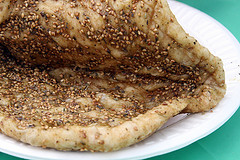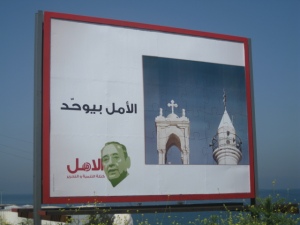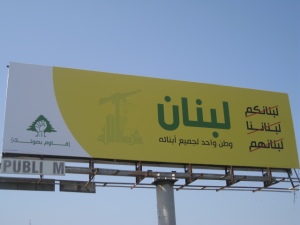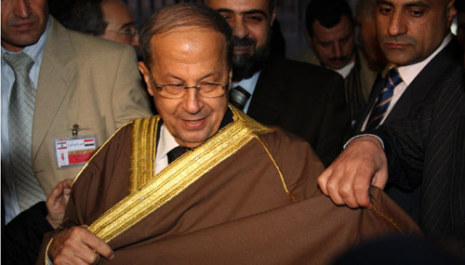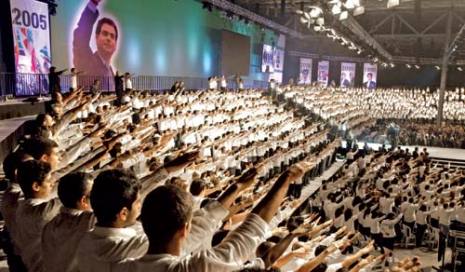Some time ago NBN (care of Nabih Berri, leader of Amal) had a show on relationships between the sexes that quickly turned into a debate about sex before marriage. The show consisted of an audience of students probably in their twenties, put in front of one Maronite priest, one Shi’a sheikh, and a sociologist from the Lebanese university (or Balamand, not sure).
I want to comment on what came out of this show, because I think it demonstrated quite well the big questions around which ‘sexuality,’ as a concept, has been framed, at least, in this part of the world. And my aim is to be as brief as possible so that people might actually want to read the whole post. So here are my tentative claims:
When we talk of sex before or after marriage today we raise questions; we come to understand sexuality very different ways than say a century ago. The role concepts like ‘religion’ and ‘belief’, play in the way sexuality is understood or framed change overtime in the sense that the very ‘notion’ of ‘sexuality’ does not mean the same thing for different people at different point in time and space. My claim is that the way we ask questions about sexuality betrays a specific ‘modern’ understanding of it that we in turn project back to some ‘non-modern’ past. This was clearly present in the discourse of the people attending the show, with or without social status (priest, academic, etc). Again just to illustrate, sexuality in the ‘modern’ sense is framed along new categories such as ‘private’ and ‘public’, sex related choices are made by ‘individuals’ living in a ‘society’. Most importantly, it puts the individual in the spotlight as a taking decision, analyzing and making ‘choices’ based on ‘reason’ or reasoned thoughts (i.e. this is good for me because such and such, or bad because such and such). All this is rather new.
The problem raised by all these ‘individuals’ when talking of their notion of sexuality is mostly not one of ethics, or even ‘morals’, but one that resembles what we clumsily call ‘identity’, and that I would characterize for the sake of simplicity here as a problem of ‘projected tradition’. Of course, social actors in place do for some think that the nature of their question is ‘moral’ (or reasoned) and that’s the whole novelty of it, but one need to go beyond the moralistic claim as representing fixed ‘values’ each person borrows from a pool of eternal norms that here we call ‘religious’ and there ‘secular’, etc. And so by identity I mean a completely fragmented constant effort at attaching representations of the self according to different traditions, histories or narrative, different signifiers built on difference, while being subjected to the various institutions, ‘legimators’, disciplinary agencies that are put in place. One needs to understand the specificity as well as the banality of statements such as ‘I am a secular’ or ‘a religious’, a ‘Muslim’, or ‘liberalist’, etc.
Every claim is attached to different representations of what the body ‘means’ for the self along with its experiential testimony (that in any case is always reverberated by meaning). If I put a veil or I don’t do sex before the marriage it means that I decide to manage my body in a specific way that builds up my ‘individuality’ as attached to the different signifying chains I make. But this building up of ‘individuality’ is crucially modern and legitimated by very similar agencies of power throughout the world, namely Nation-States and what has been dubbed ‘the liberal system’, that I definitely don’t think the “Islamic” wave challenged, for the simple reason that the political apparatus prevailing is being used without being changed by “Islamists”.
Which leads us to my third idea: with the rise of the modern state as a massive redistributor, reorganizer, and mobilizer of resources, living entities and geographies, and most importantly, as an institutional challenger to other social arrangements that once prevailed, ‘religion’ comes to occupy a different social space. The ‘religious sphere’ is created in reaction to this weird invention, the ‘secular sphere’. There is no religion, at least as we know it today before the rise of ‘the secular’ (a perfect example is the word ‘Din’ that did not mean the European term ‘religion’ likewise developed through the emergence of the capitalist system). These are new understandings elaborated in the epoch of ‘modernity’, projecting in the past notions worked out in the present through a specific reading of history, another tool for creating narratives or stories of belonging.
Now let’s see how all three points meet:
So during the show, as every person deploys such concepts and notions depending on personal strategies, experience, background, lifestyle, dispositions, etc, the different protagonists battled their way through making sense of their different social positions. The sheikh kept on going back to the idea that ‘religion’ is still very useful to regulate the lives of the commoners and that sex before marriage is more a source of nuisance than anything else, especially with marriage as a contract and very flexible tool etc. Here for example what the Sheikh points out to be ‘the religious’ was once ‘the social’ (also as we call it today) if I can permit myself such an abstraction. But the Sheikh does not realize this or let’s say that even if he did he’s nonetheless constrained by this hegemonic notion of the religious I am myself trapped in as I presently write.
The priest tried to articulate a concept of “love” which various significations could help the individual confront the realities (read as ‘choices’) fragmented families, teenagers and young adults are exposed to, and in turn could be used to strengthen their relationships. Knowing how to love creates types of union etc. The priest was in this sense way ‘weaker’ than the Sheikh, a sign of the more enduring autonomy of Islamic institutions in legislating lives and so adapting to changing meaning of words. This is understandable in the sense that the priest (along with Christian ecclesiasts of the Orient) internalized the western discourse on religiosity, an effect of the influence of Christian western missions to Lebanon that completely changed local Christian understandings of ‘Christianity’, and created an unbridgeable schism between enduring local social practices that are very similar to Islamic ones and are alien to practices that emerged in the ‘secular’ world, and the actual language that derives from the latter world.
One obvious example of this is when one guy quite sarcastically said that he was already in his mid-20s and kind of had difficulties managing his libido, and could not get married for obvious socio-economic reasons (changing realities we live in), and that he asked for counseling. So the Sheikh immediately answered him that he had the choice of zawaj el muta’a, while the priest kept on turning in circles diverting from the very banal issue of the guy until he said in an exasperated way “I have no solution for him”. The priest is left with the ‘secular’ version of Christianity, one that has no social solution in itself, but needs the backing of the all powerful State and its disciplinary institutions. Both the Sheikh and the priest though are trying to find answers to questions modernity asks.
The sociologist was a bit useless, stating obvious things such as attraction exist and that ‘statistically’ when two people are attracted and they are in the same reason there will most likely be some type of contact, you can avoided etc. This is probably a mark of the weakness of academic institutions in this part of the world in creating predominant worldviews (ideologies) and adapting discourse to local particularities without copy pasting Comte, Weber, or Gidden’s Sociology. Again this reinforces the authority ofwhat are today called ‘religious’ instances.
At some point a veiled woman in the audience answered a guy who’s been arguing for sex before marriage, explaining his argument by saying: ‘You are a secular, and I am a motadayineh’ the latter translates roughly as ‘religious’, in any case nowadays. But I think this claim is one that aims at drawing imaginary and so political differences (whether they exist in a ‘hard’ reality or not). They don’t exist as ‘sign’ that’s for sure. The question of identity that I tried to get around before is probably at work here. Then she adds quite interestingly “there is no difference between ‘making love’ and ‘having sex’ except for the emotions involved” and so for her, “marriage is for sex”. Indeed, for her, the system which encompasses what she calls ‘religiousness’ includes the social practice of getting married, legitimating, rendering ‘just’, in order to have sex. This choice she makes is akin to the one some women make when they decide never to have sex on the first night, or any other disciplinary practice that has the function of managing ‘sexual’ activity, or of course the total opposite which is to be ‘sexually liberated’ to choose to have sex whenever she wants.
But to go on a tangent here (already somehow explored in another post), one of my main ideas is that when we invoke the concept of the Secular we either refer to an institutional arrangement or a ‘State of being’. In the first case, the modern nation-state makes it very hard for alternatives to secular arrangements to exist (for example even if Iran as a political system claims to divert from secular governance, it is still institutionally very much a secular state where ‘religious’ authorities always have their legitimacy challenged by other political actors). In the second case, we are in a totally different place, we are referring to an imaginary sense of being (any sense of being is imagined I am just stressing the ‘imaginary’ part of it), that resembles more nationalist discursive elaborations, appealing to a historical tradition, a narrative that makes sense differently to each individual, although the process itself is the same (for ex claiming to be ‘religious’ or ‘secular’).
During the show, the most important (in the sense of the most mentioned) argument against sex before marriage revolved around a specific understanding of femininity, of ‘the woman’, the ‘woman in the east’, ‘the east’ as opposed to ‘the west’, etc. Most of the students agreed that one of the main problems facing women is how they will be marginalized and oppressed if they have sex before getting married (‘the fault is always on the woman’ they repeated). The Sheikh and the others agreed with this perceived social status-quo, calling on the students to then take marriage as a useful tool to escape this danger.
But I was astonished to see the extent to which certain women internalize this status-quo. At some point, one woman says to a guy advocating sex before marriage: “At the end of the day, will you accept to marry a non-virgin woman”, and I don’t know why but the other guy did not answer, and the discussion went into another direction. But this woman takes very seriously this eventuality: being refused by men because they lost their virginity ‘to somebody else’. She was practically accusing the guy of even thinking getting a woman that is not virgin. This is not just ‘female subjection’ as would a classical feminist reading of this would go but also ‘man subjection’: She was calling on the man to fulfill his role as “man” in a certain sense as dictated by ‘eastern society’. When you define the woman you are defining the man, a subject always overlooked by those studying women’s condition in this part of the world.
So in a way this was an unconscious acknowledgement that there is no ‘essential’ moral problem with having sex before marriage, but that it had to do with a particular region (they do it in the West but they are ‘different’, again the identity argument) that creates specific understandings of what it is to be a woman or a man. By the way, all this stands in radical contradiction with (and actually incorporation of) the repeated claim during the show that ‘we live in another epoch today’, the ‘epoch of fast information, internet, etc’ where ‘everything is available’. This is basically sex in the modern age: A redefinition of roles, a re-ordering of the functioning of institutions whether called religious or secular, a remaking of differences, and in order to defend these differences, the flashing of hollow moral arguments that hides a re-ordering of perceptions of the body and what it ‘means’ to the actors involved.
 The date of this event is not relevant anymore as it is just a template for similar recurring events in the land of the Lebanon. Crumbling under the weight of her make up the talkshow host of “للنشر” (for publication) bullied for about 20min a Syrian woman nursing a baby. The woman turned out to be a beggar who we are told fakes being handicapped in order to get money on the streets of Beirut. The contrast between these two women was striking. The beggar was dressed in rags holding her child whose skin was blackened by Beirut dusty and filthy streets while the TV host shined with her jewelry, her fancy clothes. The contrast went hand in hand with the domineering and judgmental attitude the TV hostess has as the discussion quickly turned into a general critique of the beggar’s way of life. At some point her child started crying and she said that she needed to breast feed him to which the hostess rushed to kick her out of the stage. This episode of the show was immediately followed by a series of ads about glittering jewelry!
The date of this event is not relevant anymore as it is just a template for similar recurring events in the land of the Lebanon. Crumbling under the weight of her make up the talkshow host of “للنشر” (for publication) bullied for about 20min a Syrian woman nursing a baby. The woman turned out to be a beggar who we are told fakes being handicapped in order to get money on the streets of Beirut. The contrast between these two women was striking. The beggar was dressed in rags holding her child whose skin was blackened by Beirut dusty and filthy streets while the TV host shined with her jewelry, her fancy clothes. The contrast went hand in hand with the domineering and judgmental attitude the TV hostess has as the discussion quickly turned into a general critique of the beggar’s way of life. At some point her child started crying and she said that she needed to breast feed him to which the hostess rushed to kick her out of the stage. This episode of the show was immediately followed by a series of ads about glittering jewelry!
